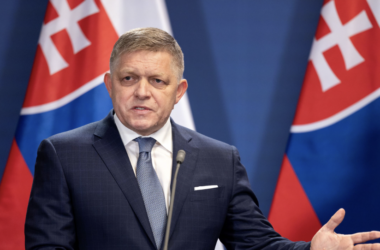The European Union is urging its citizens to prepare for potential crises by assembling a 72-hour emergency kit, which should include essentials such as food, water, and copies of important identity documents.
This call is part of the EU’s newly unveiled Preparedness Union Strategy, which aims to ensure that citizens are ready for various crises, from natural disasters and industrial accidents to cyber and military threats.
The strategy, introduced on Wednesday by the European Commission, outlines 30 specific actions that member states should implement to strengthen their preparedness. Among the key actions is the enhancement of stockpiles for essential supplies and improving civilian-military cooperation across the EU.
“In the EU we must think differently because the threats are different, we must think bigger because the threats are bigger too,” said Hadja Lahbib, the EU Commissioner for Humanitarian Aid and Crisis Management.
Roxana Mînzatu, the EU Commissioner for Preparedness, emphasized that the EU is “not starting from scratch.” “The COVID pandemic has shown that the added value of acting together in solidarity and coordination in the European Union framework is absolutely crucial. This is what makes us more efficient, makes us stronger,” she said.
A major focus of the strategy is enhancing public preparedness, with the Commission encouraging member states to ensure citizens have an emergency kit that will sustain them for at least 72 hours if they are cut off from essential supplies. Several countries already have survival kit guidelines with different timeframes. For example, France recommends a 72-hour kit that includes food, water, medicines, a portable radio, flashlight, spare batteries, chargers, cash, copies of key documents like medical prescriptions, spare keys, warm clothes, and basic tools. The Commission’s goal is to standardize these guidelines across all 27 member states to ensure that everyone has clear instructions on how to respond when disaster strikes.




